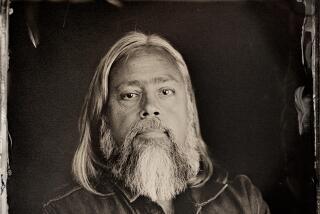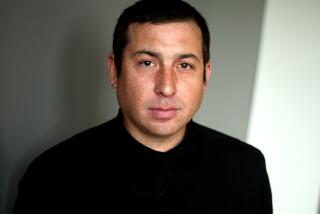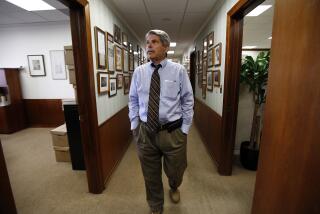Historian of Native Americans Tells His Own Story With Spirit
- Share via
“Of all the qualities of mind and character, that which is paramount in the development of students is a zest for living. For them life must be a great adventure, an always setting forth and an always discovering. . . .”
Historian Alvin M. Josephy Jr. takes these words from Alfred Baruth, his former English teacher at Horace Mann School in New York, and it is fitting that he has, because in his charming and instructive memoir, “A Walk Toward Oregon,” Josephy shows himself to have had just such a powerful appetite for life during all his 85 years.
Josephy devotes less than a third of “A Walk Toward Oregon” to the post-1951 works for which he is best known, as author of “The Patriot Chiefs,” “The Indian Heritage of America,” “Now That the Buffalo’s Gone” and “The Civil War in the American West.” As one of the few non-Indians most responsible for bringing the Native American toward the forefront of contemporary America’s consciousness, Josephy was an editor of American Heritage magazine and the founding chairman of the Smithsonian’s National Museum of the American Indian, now underway on the Washington Mall.
Most of his book, in fact, is the story of his life as a privileged young New Yorker, a Harvard student (until the lack of money in the Depression made him drop out), a young student politician active against the Louisiana demagogue Huey Long, a scriptwriter in Hollywood in the 1930s (briefly), a reporter for the Herald-Tribune in Mexico City (where he interviewed Leon Trotsky), a correspondent for the Mutual radio network, a propagandist for the U.S. government after the war began and, most notably, his year as a Marine combat correspondent in Guam and Iwo Jima.
His descriptions of the combat he endured (and took part in: He shot and killed at least one Japanese) are at the vivid center of this book, as they are, one must surmise, of his life. He wrote to his parents from Iwo Jima that being among men who are fighting the enemy with you is “one of the greatest moments of living, the moment of supreme companionship. . . . It is one of the greatest thrills of life.” By this time he had gone ashore with the first wave of invaders at Guam, broadcasting as he waded through the water and crawled up the beach. For this he was awarded the Bronze Star.
Josephy takes his book’s title from a quotation from Thoreau: “Eastward I go only by force, but westward I go free. . . . I must walk toward Oregon, and not toward Europe.” He first imagined what Oregon was like as a little boy living in upper-middle-class comfort on Riverside Drive and gazing at the Palisades across the Hudson, wondering what adventures and what wild country lay beyond them. His father was a moderately successful businessman; his mother’s father was a rich man with a Rolls-Royce and a French chauffeur.
Josephy’s uncle was Alfred A. Knopf, whose eponymous house published this book, as well as some of Josephy’s others. Knopf’s friend H.L. Mencken encouraged the high school student to write and sent a letter of recommendation to Harvard. Josephy’s student days and his personal experience of the Depression made him a life-long New Dealer, proud enough of his government to be, at first, dismayed at the anti-government protests a generation later against the war in Vietnam.
Reluctantly at first, then with increasing ardor, he joined some of the protests at the same time as he was taking a more radical approach to Indian affairs. He became interested in American Indians while at Time magazine, for which he worked happily for a decade. It was a chance encounter in Idaho with some Nez Perce that led him bit by bit to become one of the leading chroniclers of Indian life and history and one of the principal non-Indian promoters of the Indian drive for self-sufficiency and self-government.
Josephy came to believe that the Indians’ side of history must be told, and he reports with satisfaction that the new Museum of American Indian History must have, by charter, a majority of Indians on its board and an Indian as director. In uncommonly vivid prose, he recounts for us in “A Walk Toward Oregon” a life lived with much gusto and zest during a time of tumult, change and great achievements in the life of America and its people.
More to Read
Sign up for our Book Club newsletter
Get the latest news, events and more from the Los Angeles Times Book Club, and help us get L.A. reading and talking.
You may occasionally receive promotional content from the Los Angeles Times.










